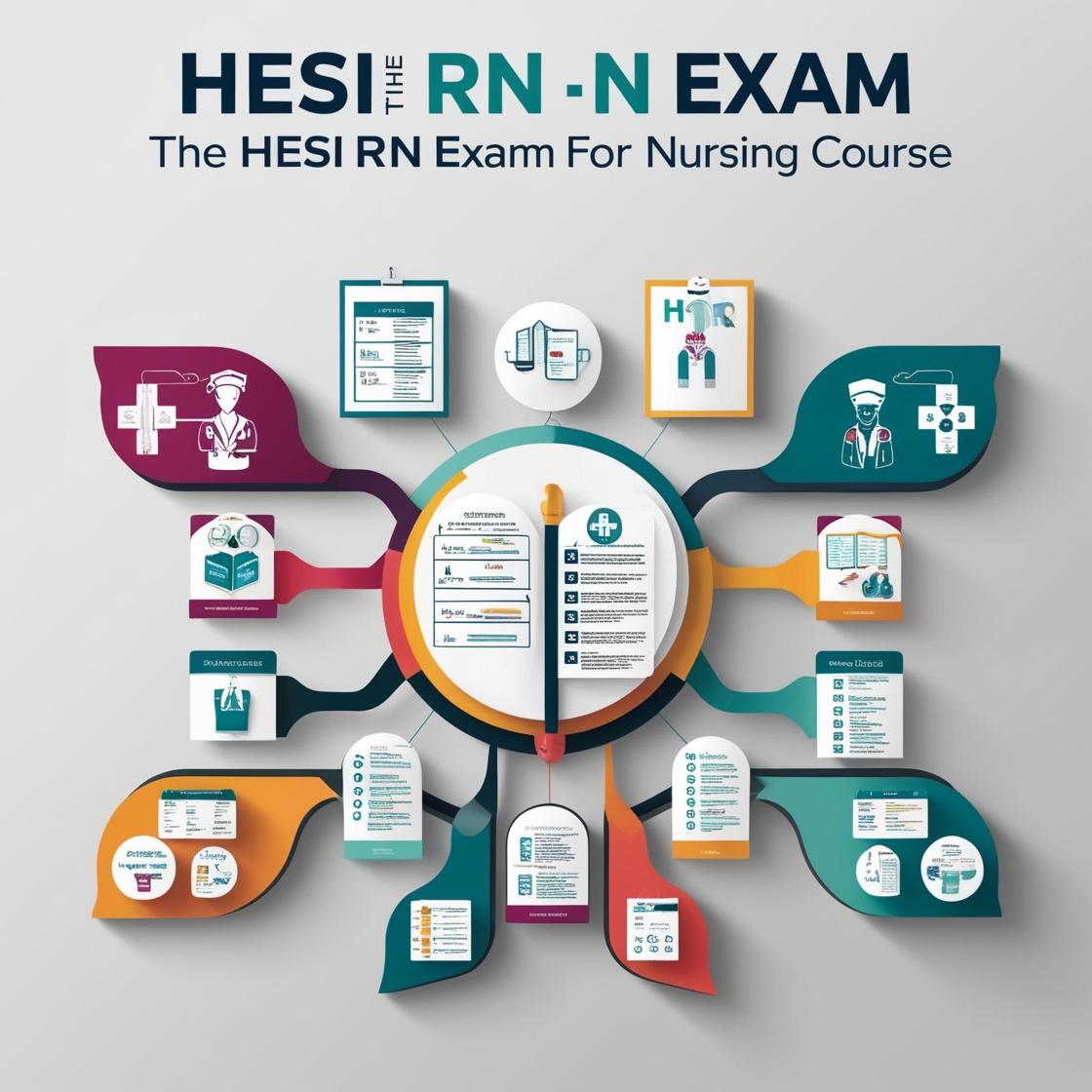HESI RN
HESI Quizlet Fundamentals
1. A client is admitted to the hospital with a diagnosis of pneumonia. Which laboratory test result should the nurse monitor to evaluate the client’s respiratory function?
- A. Arterial blood gases (ABGs)
- B. Complete blood count (CBC)
- C. Blood glucose levels
- D. Serum electrolyte levels
Correct answer: A
Rationale: Arterial blood gases (ABGs) are the most appropriate laboratory test to monitor respiratory function in a client with pneumonia. ABGs provide valuable information on oxygenation status, acid-base balance, and how well the lungs are exchanging gases. This information helps in assessing the effectiveness of ventilation and oxygenation, guiding treatment decisions, and evaluating the overall respiratory status of the client.
2. The daughter of an older woman who became depressed following the death of her husband asks, 'My mother was always well-adjusted until my father died. Will she tend to be sick from now on?' Which response is best for the nurse to provide?
- A. She is almost sure to be less able to adapt than before.
- B. It's highly likely that she will recover and return to her pre-illness state.
- C. If you can interest her in something besides religion, it will help her stay well.
- D. Cultural strains contribute to each woman's tendencies for recurrences of depression.
Correct answer: B
Rationale: The successful resolution of a developmental crisis in the later years involves acceptance and adaptation, and the daughter should be reassured that recovery is likely.
3. When measuring vital signs, the healthcare provider observes that a client is using accessory neck muscles during respirations. What follow-up action should the healthcare provider take first?
- A. Determine pulse pressure
- B. Auscultate heart sounds
- C. Measure oxygen saturation
- D. Check for neck vein distention
Correct answer: C
Rationale: Observing a client using accessory neck muscles during respiration indicates respiratory distress. The priority action should be to measure oxygen saturation to assess the adequacy of oxygenation. This intervention provides crucial information about the client's respiratory status and helps guide further assessment and interventions.
4. How should the nurse prepare the body of a deceased adult for transfer to the mortuary?
- A. Leave the body as is, no preparation needed
- B. Bathe the body and place ID tags on it
- C. Remove dentures before bathing the body
- D. Position the body with its head down and arms folded on its chest
Correct answer: B
Rationale: When preparing the body of a deceased adult for transfer to the mortuary, it is essential to bathe the body and place identification tags on it. This process ensures proper identification and respectful care of the deceased individual.
5. The client is being taught how to self-administer a subcutaneous injection. To ensure sterility of the procedure, which subject is most important for the instructor to include in the teaching plan?
- A. Hand washing before preparing the injection.
- B. Technique for drawing medication from a vial.
- C. Selection and rotation of injection sites.
- D. Proper disposal of injection equipment.
Correct answer: B
Rationale: To maintain the sterility of the procedure, it is crucial to teach the client the correct technique for drawing medication from a vial. This ensures that the medication remains sterile during preparation and administration. While hand washing, injection site selection, and equipment disposal are important aspects of injection safety, the key focus should be on maintaining the sterility of the medication itself to prevent infections and ensure the effectiveness of the treatment.
Similar Questions

Access More Features
HESI RN Basic
$69.99/ 30 days
- 50,000 Questions with answers
- All HESI courses Coverage
- 30 days access @ $69.99
HESI RN Premium
$149.99/ 90 days
- 50,000 Questions with answers
- All HESI courses Coverage
- 30 days access @ $149.99
